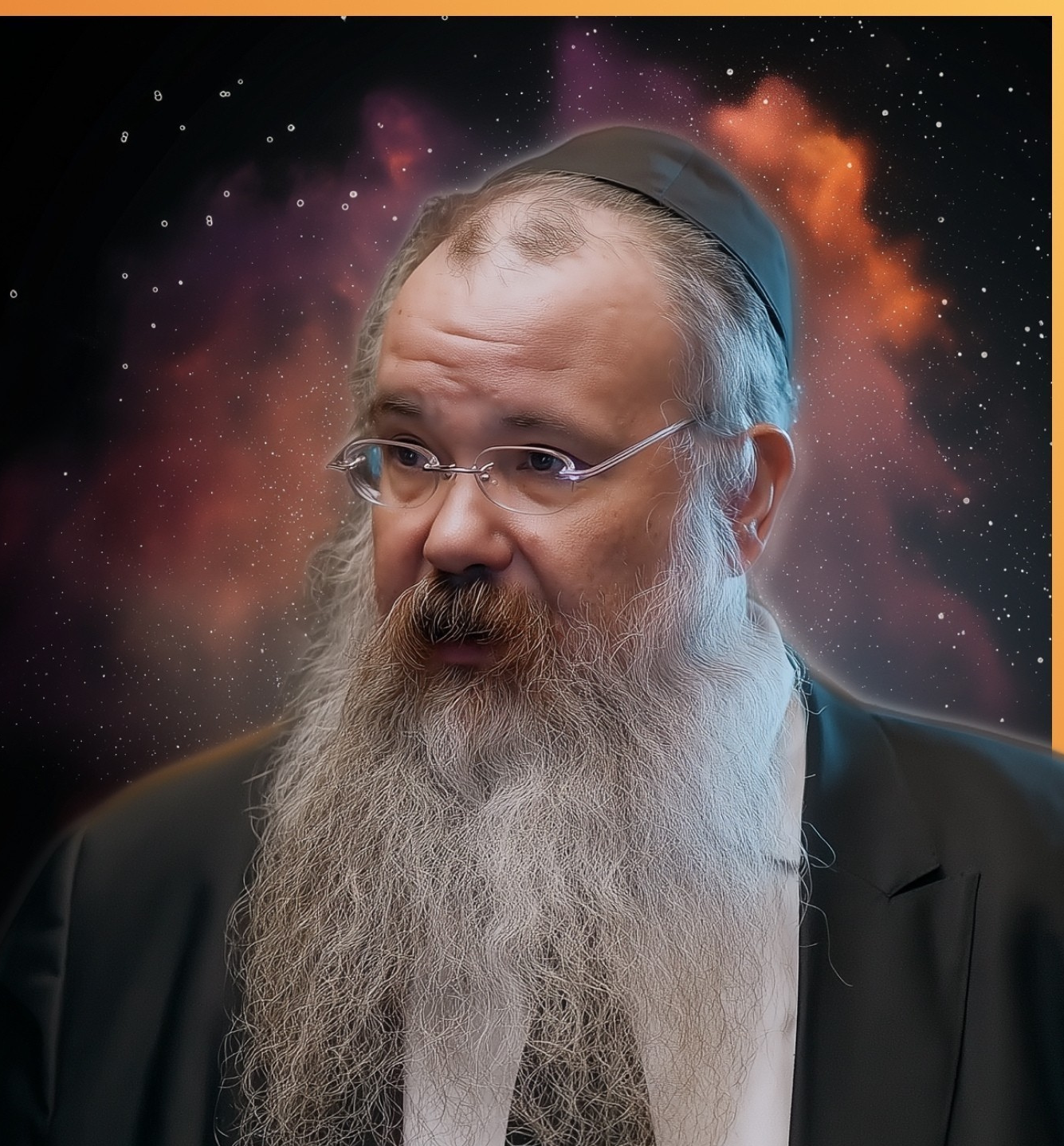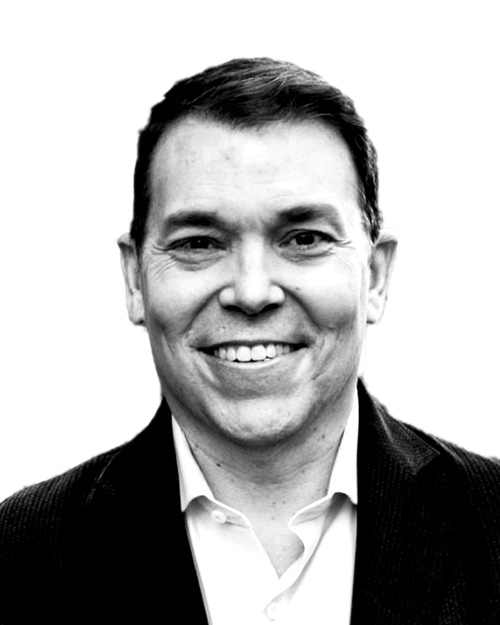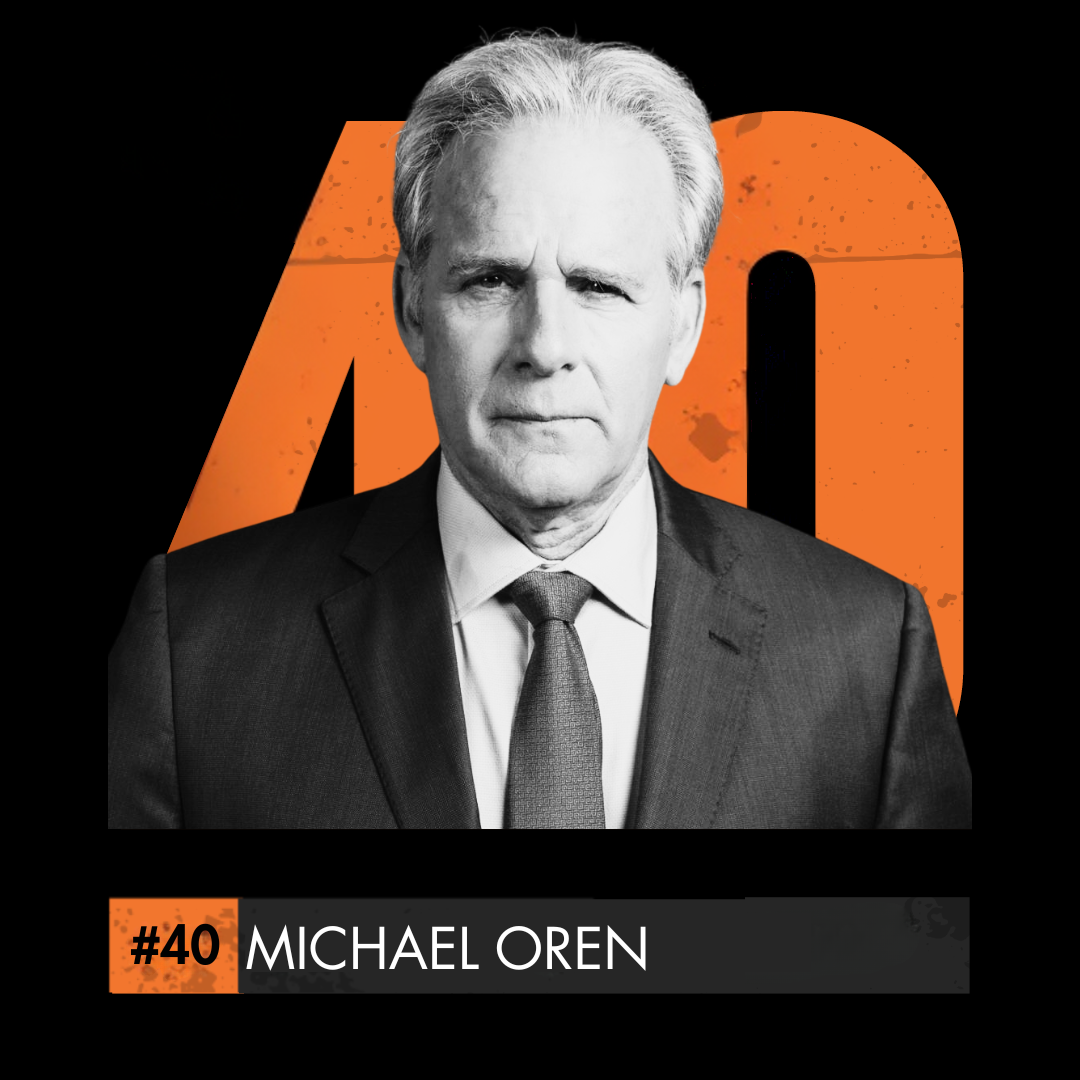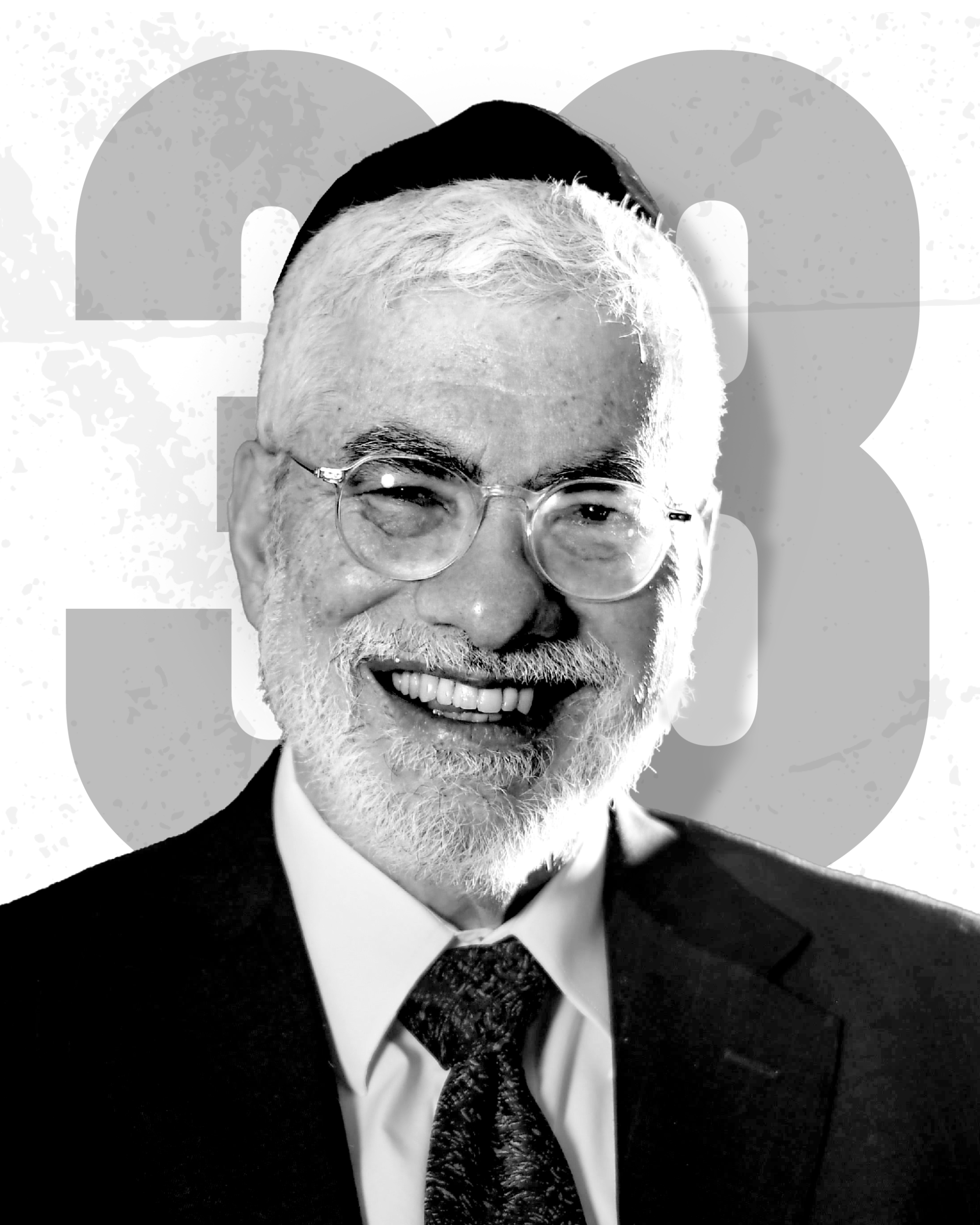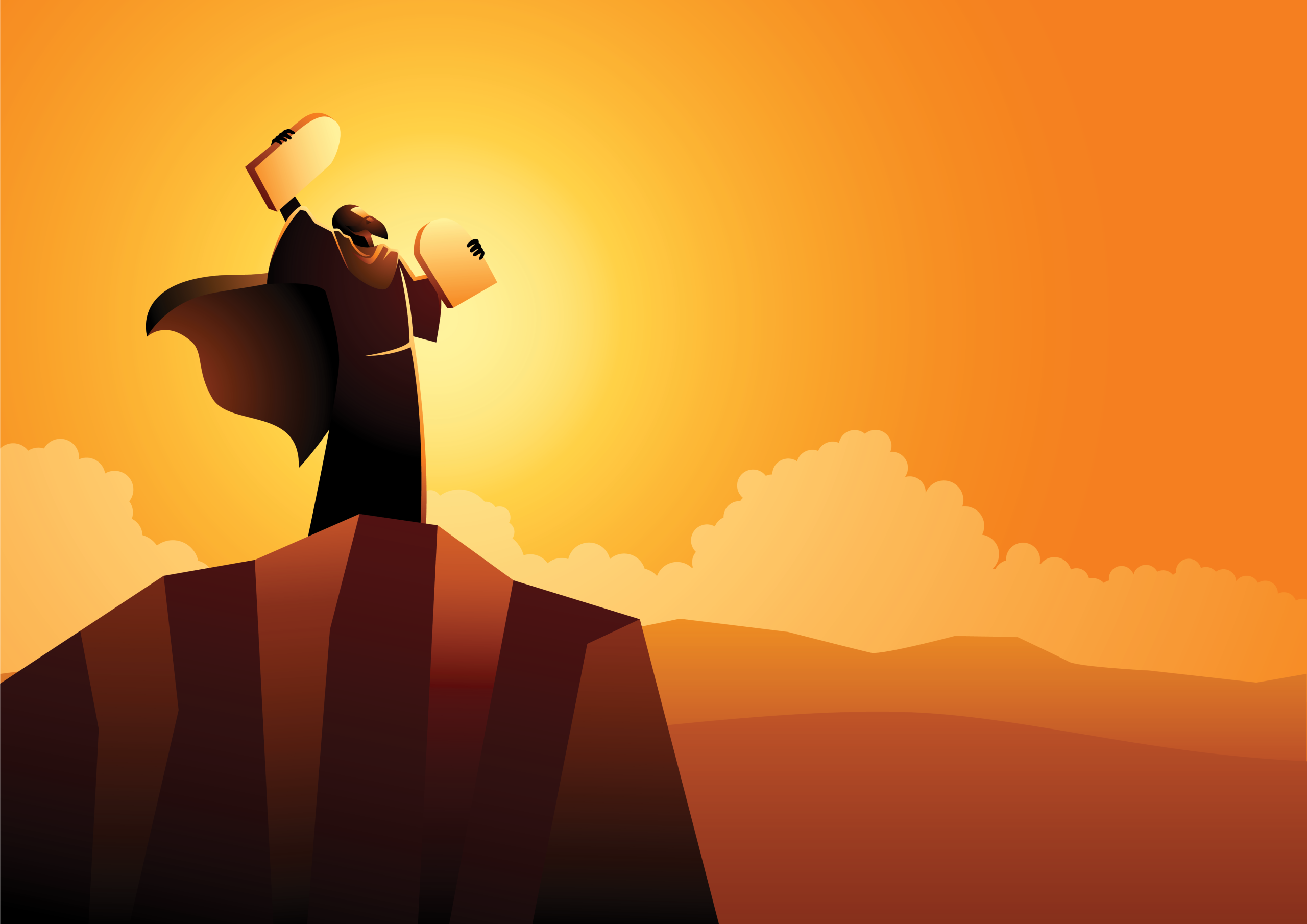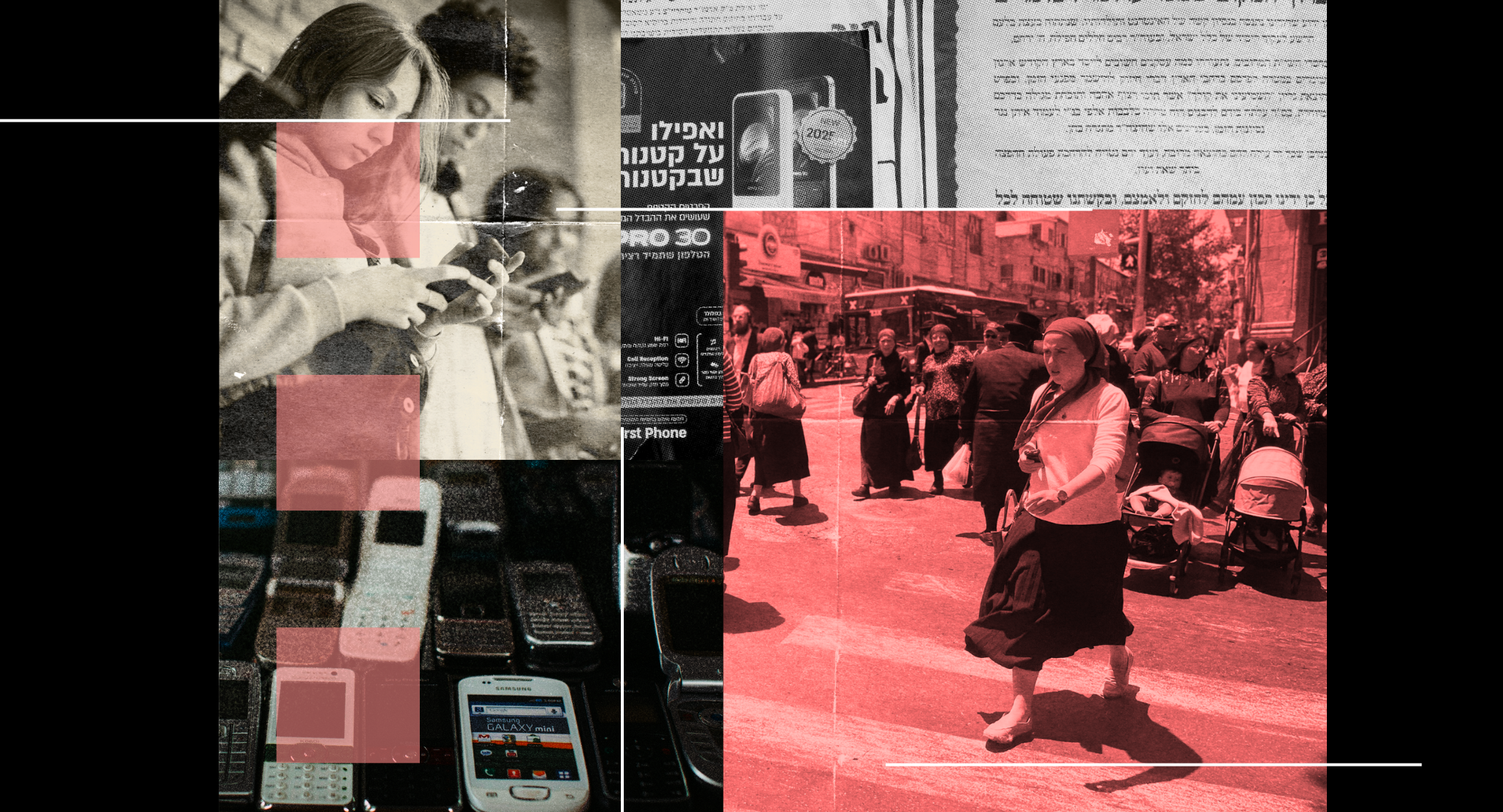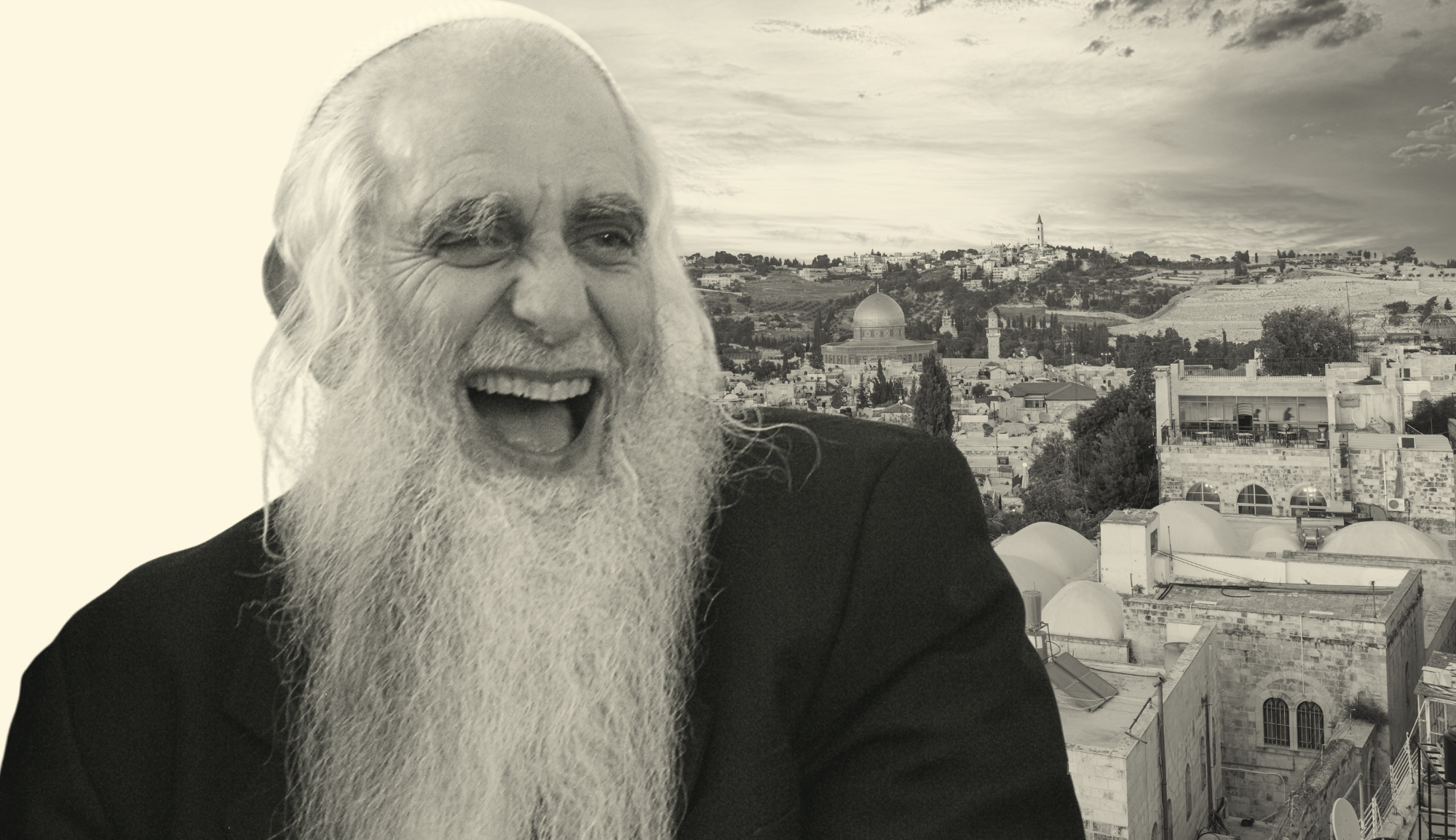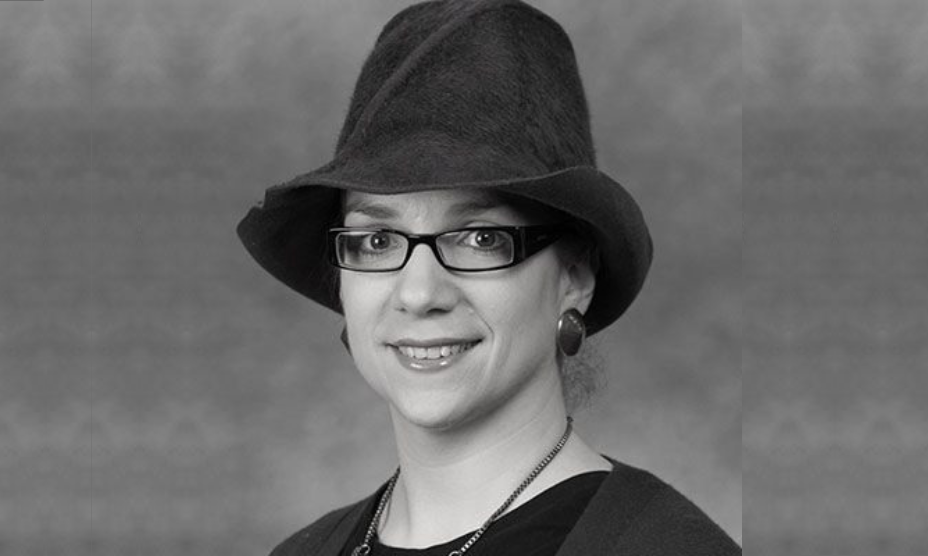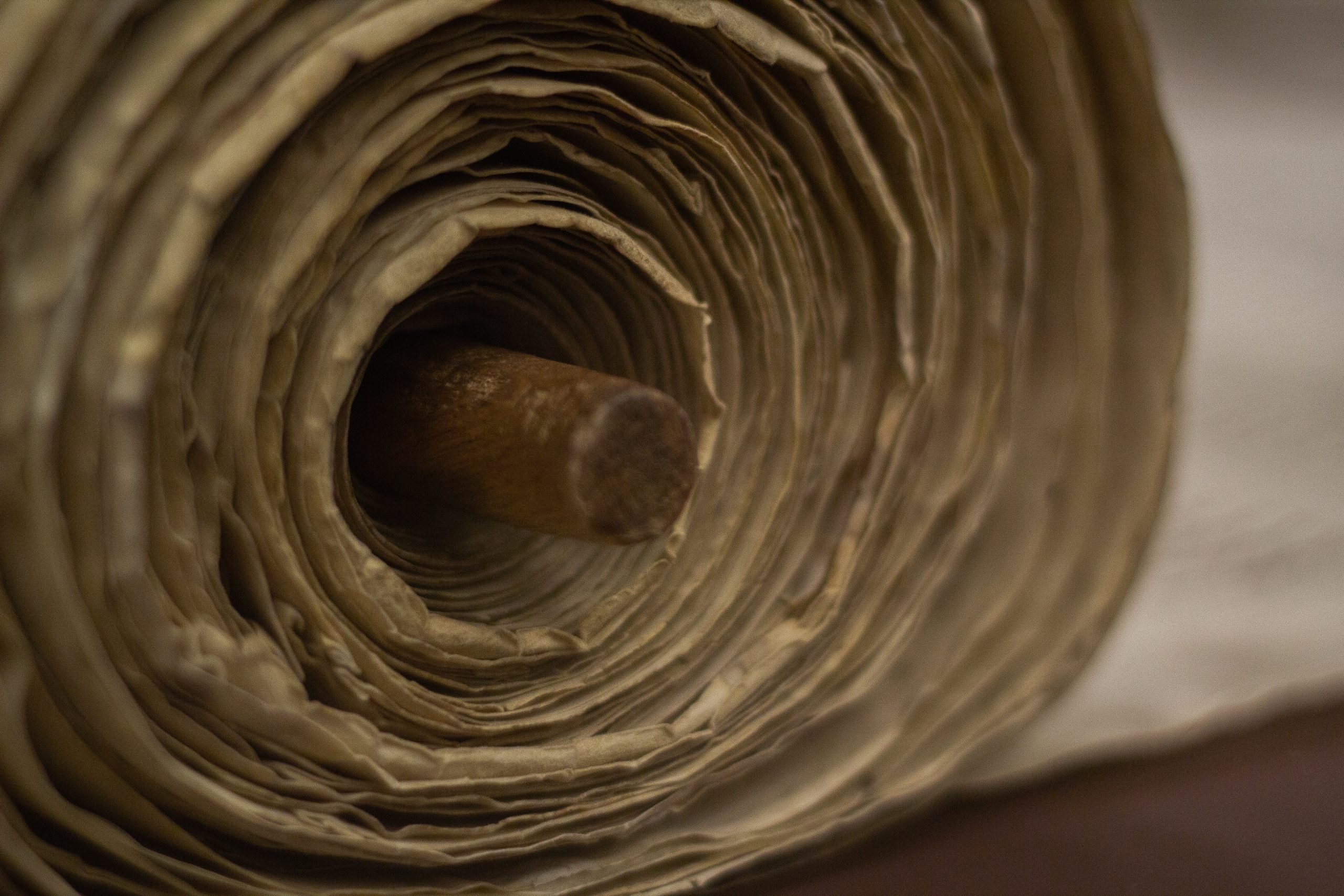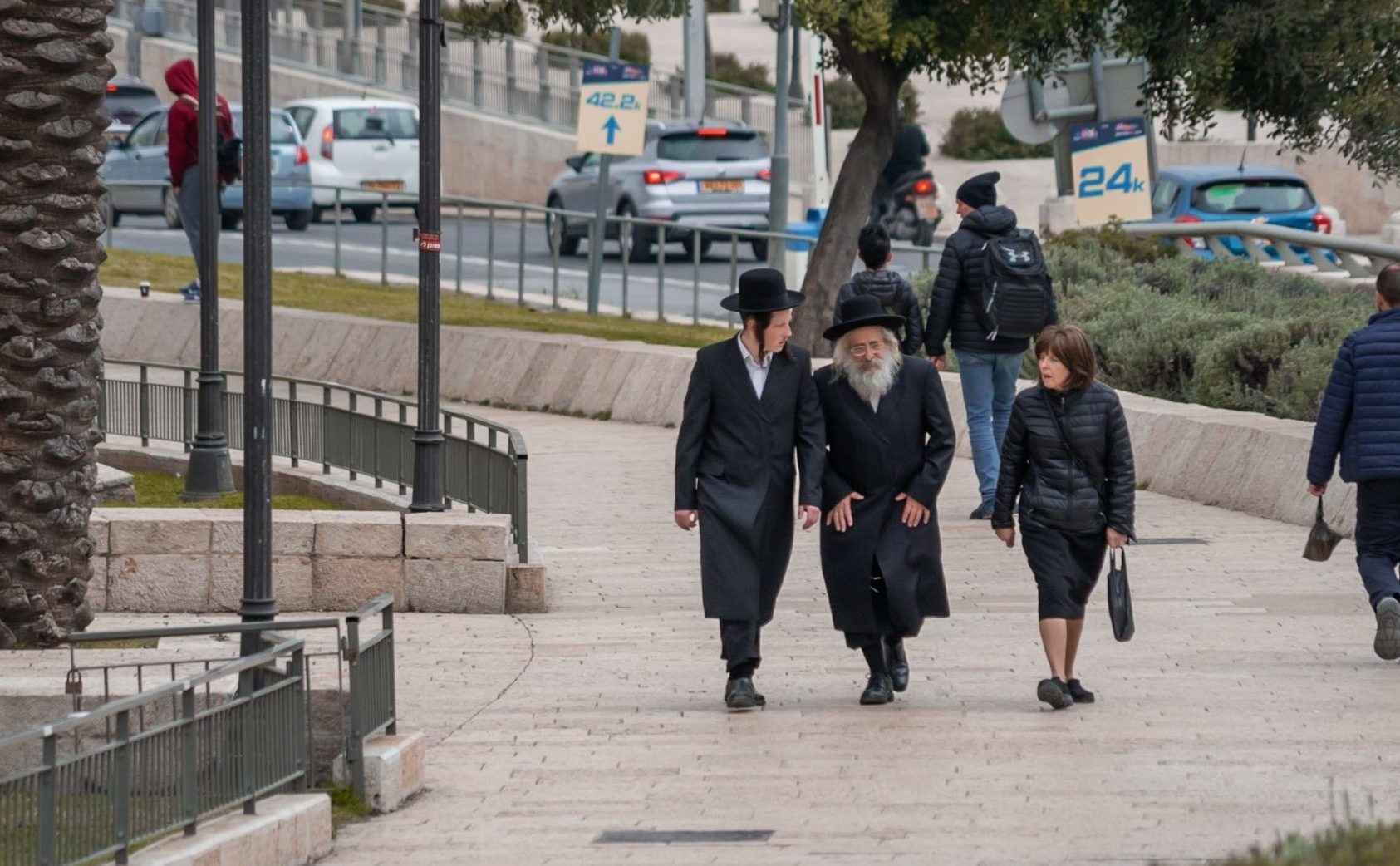Kelsey Osgood: A Conversion Narrative of Sorts
In this episode of the 18Forty podcast, David sits down with Kelsey Osgood, author of How to Disappear Completely: On Modern Anorexia, contributor to the New Yorker’s Culture Desk blog, and perpetuator of Jewish thought. From a self-proclaimed young tyrant of atheism to a Jewish convert from Christianity, Kelsey shares her valuable perspective on the…
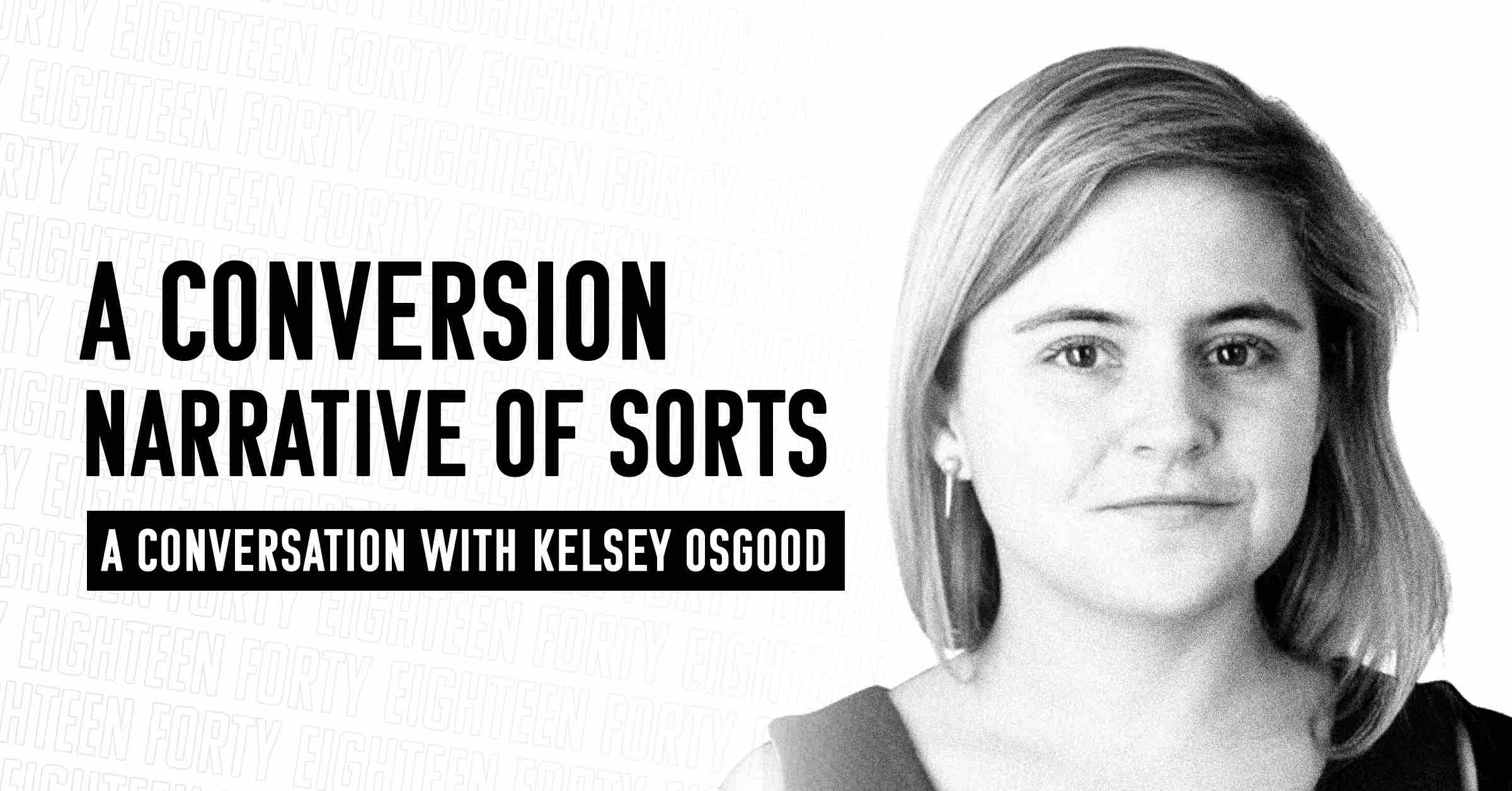
Summary
In this episode of the 18Forty podcast, David sits down with Kelsey Osgood, author of How to Disappear Completely: On Modern Anorexia, contributor to the New Yorker’s Culture Desk blog, and perpetuator of Jewish thought. From a self-proclaimed young tyrant of atheism to a Jewish convert from Christianity, Kelsey shares her valuable perspective on the attraction and limitations of being “twice-born.”
From a young age, Kelsey’s visceral need to answer existential questions and painful struggle with anorexia influenced her pursuit of a community that offered belonging and fulfillment. Within Orthodox Judaism, she took a particular interest in those who had gone ‘Off The Derech’ (OTD) and grappled with difficult questions.
- Why do some have an innate urgency to be reborn?
- With regards to finding purpose, are there any parallels between one’s commitment to religion and struggle with severe illness?
- Are there takeaways from individuals leaving a community that may be relevant to prospective members?
- Can two juxtaposing missions be equally worthy for each individual?
Tune in to join David and Kelsey as they turn these questions into insight.
David Bashevkin:
Welcome to the 18Forty podcast, where we discuss issues, personalities and ideas about religion and traditional world confrontation with modernity, and how on earth are we supposed to construct meaning in the contemporary world right now. I’m so excited to introduce my next guest, who was actually first introduced by a book review she wrote for The New Yorker, entitled: “Judaism and the Twice-Born,” which was a review of Shulem Deen’s memoir, All Who Go Do Not Return. She has a fascinating story of her own. She’s an author who wrote the book: How to Disappear Completely, which is another personal memoir about her experience with an eating disorder. It is my absolute pleasure to welcome Kelsey Osgood to the podcast. Thank you so much for joining us, Kelsey.
Kelsey Osgood:
Thank you, it’s my pleasure.
David Bashevkin:
Your article, Judaism and the Twice-Born, is about a memoir, and what we’re really discussing about is somebody who left the Orthodox community, what’s colloquially known as somebody who is off the derech, somebody who has left the path, so to speak. You have a really unique vantage point and you couch in a quote from William James, who writes that, “The religion of the twice-born, the world is double-storied mystery. When you are twice born the world is a double-storied mystery,” and you yourself are twice-born. You are a convert to Judaism.
Kelsey Osgood:
That’s right.
David Bashevkin:
So can you maybe start with your own story and tell us, where were you raised, and how somebody like yourself got involved with Judaism, and then we’ll use that lens and perspective to think a little bit about your unique vantage point and how you view in your articles and coverage of the people who have left religion, paralleling your own story of coming to religion.
Kelsey Osgood:
I was born and raised in Fairfield County, Connecticut, in a town called Darien, which is notorious for being socioeconomically very homogeneous, very…
David Bashevkin:
Upscale?
Kelsey Osgood:
Upscale.
David Bashevkin:
Classic.
Kelsey Osgood:
White, waspy, in many ways, what you would think of as a stereotypically –
David Bashevkin:
Is it the Christian Long Island of the world?
Kelsey Osgood:
Kind of, like an upper crust Connecticut.
David Bashevkin:
I grew up in Long Island, so I’m thinking, “We’re Jewish, but we’re also homogeneous, socioeconomically.”
Kelsey Osgood:
Yeah, there is a definitely a parallel to be made there. Where I grew up, people vacation in Nantucket, and in the wintertime they go skiing, and they play tennis and golf.
David Bashevkin:
We grew up imitating your community.
Kelsey Osgood:
The markers of waspy success you might say. The demographic is not very religious. I would say most of the people… I was a kid, so I wasn’t necessarily privy to everybody’s private life, but there’s not a large religious population by any metric. Most people were the way that my family was, which is to say Eastern Christmas Protestants by name only… Oh sorry, Eastern Christmas churchgoers, some flavor-
David Bashevkin:
The proverbial high holidays Jew, but the Christian parallel?
Kelsey Osgood:
Exactly.
David Bashevkin:
It’s nice to know that other religions have that custom also.
Kelsey Osgood:
They do, and when I was a kid I was very preoccupied with questions that are the staples of moral and religious and philosophical thought, which is college donor questions like, “Why are we here? What are we supposed to be doing with our lives?”
David Bashevkin:
These existential angst-y…
Kelsey Osgood:
Yeah, these were things that really plagued me.
David Bashevkin:
And that began at what age?
Kelsey Osgood:
I don’t really remember is the truth.
David Bashevkin:
Like that early?
Kelsey Osgood:
Quite young. My really distinct memory of an instance where this sort of thing was bothering me was being on the bus in elementary school and thinking very deeply about somebody else who was on the bus, and how could I ever truly understand my friend’s consciousness as separate from my own, this kind of stuff, that there’s no answer to that, but from my viewpoint as a little kid, I kind of thought: “All these adults are just walking around. None of this is happening and nobody’s addressing this – ”
David Bashevkin:
You’re not attuned to the drama and the angst of the mystery of life.
Kelsey Osgood:
Exactly, the human tragedy.
David Bashevkin:
Did you try going at first to church? Where did you first turn? You have this-
Kelsey Osgood:
Yeah… My parents both worked full-time. I had a babysitter who was Irish Catholic in the way that, for the Irish much like the Jews, religion and culture are so enmeshed that sometimes they can’t really tell where it ends. So I’m not exactly sure, even to this day, how much a believing Catholic that she was or is now, but she used to take me to Mass, and I was enamored when I was little kid with the pomp and circumstance of Mass and the drama of it –
David Bashevkin:
The theatrics, the ritual –
Kelsey Osgood:
Yeah, and the ritual was very compelling to me. I think my father, I don’t remember him calling me this, but he told me that he used to jokingly call me Sister Mary Kelsey when I was very little because I –
David Bashevkin:
They just didn’t know what to do with you, like you were different –
Kelsey Osgood:
No, this is… I think Walter Benjamin said something like, “People just have an ear for religion,” and my parents just don’t really have that. It’s not an appetite that they have.
David Bashevkin:
And you had this natural ear, like you were in tune to the rhythm of the religious questions in life and all that, you heard it.
Kelsey Osgood:
Yeah, I think so. I think I just… I’ve always felt like that part of me has been a little bit beyond my control. It is a valuable thing, I appreciate it about myself, but I also don’t really mean to humble brag, there are plenty of times where it’s not really served me that well. So I used to go to Catholic Mass with this babysitter, and I remember doing that, but I don’t remember this next anecdote, which I’m about to share, which is, when I was around eight there were kids there who went to the church who were doing a dress rehearsal for their first communion, and I guess what happened is that I must have realized, “This is a community and I’m technically not a part of this community.” I knew I had never been baptized, I knew we weren’t Catholic. So I told my babysitter, “We have to leave right now. We have to get up and leave the church immediately,” like I’m a child from a horror movie or something like, “Waaa – ”
David Bashevkin:
Got you.
Kelsey Osgood:
And she did. We left and right around that age is the time where I remember starting to think, “Okay, that’s it, there’s no god. It’s all got to be some adult conspiracy to keep us kids in line.” I had a fear, also very like school was the same, I felt like this was all –
David Bashevkin:
Yeah, like institutional invisible power.
Kelsey Osgood:
Right, some sort of Marxist in a sense.
David Bashevkin:
Yeah.
Kelsey Osgood:
From that point, up until I would say probably midway through college, I was very outspoken about thinking that religion was a benign lie at best, or destructive at worst.
David Bashevkin:
It was the opiate of the masses at best, or it was actually hurt everybody – and this interim period, this is what you write about in your book, that’s when you were also struggling with an eating disorder.
Kelsey Osgood:
Right, so that began around 13, so it was about five years after I really had decided, “Okay, I’m a child atheist,” or whatever. So when I developed an eating disorder… It took a few years for the parallels to really sink in. Anorexia offers a lot of the same comforts that institutional religion does. It’s very ritualized, it gives you an overarching purpose, very focused goal, and in the ’90s and early 2000s when I was beginning to struggle with this, it also gave you a culture. There were communities popping up online where people who had eating disorders could connect with one another, and commiserate, and talk about the various literary and televisual offerings that depicted anorexia and bulimia.
David Bashevkin:
Yeah, I remember the first time I learned about eating disorders was one of these made-for-TV NBC movies. It’s probably people in that community know it and you would see the girl slice up foods and carrots, it was very dramatic and seeing it as a boy, not something that I ever struggled with, but I identified with having that otherness, that differentness, and having that shared community within that differentness.
Kelsey Osgood:
Sure, that’s another thing that it offers, is the sense of: I’m separate from people, I’m special because I have this ability, but I’m also…
David Bashevkin:
Did it provide you meaning?
Kelsey Osgood:
Put upon – It did, but I mean –
David Bashevkin:
Identity, because you have this line that I loved. You’re quoting from Ernest Becker, and it’s in a review of a different, not Shulem’s book but a different part of another book that was written that’s a part of this general genre of people leaving the Orthodox community, where you say, he has line calling, “despaired of cosmic heroism.” That there’s a despair that emerges that you don’t have this unique identity, and sometimes people, when the veil of religion provides that to an extent and maybe an eating disorder, God forbid, as difficult as that is, gives you that cosmic drama.
Kelsey Osgood:
For sure, absolutely, and probably anybody who’s ever dealt with one will, not anybody, but most people will confirm that, that your world gets very small, but the stakes get really high, or they feel really high, and you do feel the sense that you’re on this mission, and you’re alone, and that’s horrible and painful, but also can be really satisfying… All that stuff. I wouldn’t say that it ever successfully gave me that. It…
David Bashevkin:
It always comes up to the precipice of it?
Kelsey Osgood:
Yeah, and then there’s always – for me anyway, other people might feel differently – there was always a little bit of a loophole. I never fell fully “satiated,” for lack of a better word, by it. When I felt like it was really providing these things for me, for whatever reason something… I never stopped wanting to be also in the outside world. Even when I was really sick I think there was a part of me that thought, “Well, somebody I’ll get better and I’ll have a regular life, and I’ll achieve in that other life too.” I wanted to be a functional person. I never stopped wanting to, for example, have kids or –
David Bashevkin:
You want a family.
Kelsey Osgood:
Yeah.
David Bashevkin:
That was always in the back – So one of the most interesting stories you have was that the first time, I think it was the first time that you saw up close, an Orthodox, particularly Hasidic Jew, was while you were hospitalized for your eating disorder.
Kelsey Osgood:
Yeah, so I went to Columbia undergrad, and I was there for one semester of my freshman year, and there are religious kids on campus, but at the time I was not well, so I really wasn’t paying attention to very much at all. Then that holiday vacation of that year, I was hospitalized at a facility that’s on the border of Queens and Long Island, and there were a lot of, percentage-wise –
David Bashevkin:
It seemed like a lot, yeah.
Kelsey Osgood:
Percentage-wise there were a lot of kids from the orthodox spectrum of Judaism, from Hasidic, from Monsey all the way to Flatbush yeshivish, and I was immediately fascinated. I had known Jews in high school, ironically when I switched from public school in Darien to a private school, then I had some Jews in my class, in Darien there was one, maybe.
David Bashevkin:
But never a Hasidic Jew or Orthodox?
Kelsey Osgood:
No… I went to one bar mitzvah, but nothing distinguished my Jewish peers from myself as far as I could tell when I was younger, and these people… Their lives were organized around their belief system in a way that… Now I was 18, so I very naive at the time, but I thought, “Well gosh, why do they need another belief system? They already have one that looks so – ”
David Bashevkin:
“Another belief system” meaning the eating disorder of Judaism.
Kelsey Osgood:
Yeah, at the time thinking… I realized that those were some of the things that I found appealing about anorexia, I was aware of that. Now I maybe didn’t realize that those other people had different reasons for bringing them there. I just assumed that everybody craved those same things that I did. I think I might have admitted to being jealous in a way to myself, that here are these people who have all these things that I feel that in my life I lack, some sense of being a link in a historical chain, a unified culture, a sense of purpose and meaning –
David Bashevkin:
That capital L in “loneliness”was being addressed with a very organized system.
Kelsey Osgood:
Yeah –
David Bashevkin:
Did you develop any actual friendships with them or you were just looking at it in your binoculars?
Kelsey Osgood:
No, I was friends with a few of them, and I don’t have too many friends left from my hospital days. It’s been more than a decade since –
David Bashevkin:
Yeah, it’s been a while.
Kelsey Osgood:
But one person that I still have a close relationship with is –
David Bashevkin:
To this day? Wow.
Kelsey Osgood:
Yeah, and I went, maybe a year after we were in the hospital together, I went to Flatbush to her family’s house on a Saturday to visit her without any understanding of the cultural implications of this. Not that they would have been –
David Bashevkin:
Going on shabbos you still were not Jewish, were out of the hospital, and you went to her house for shabbos.
Kelsey Osgood:
Yeah – Right… It’s not that they would have thought, “Oh gosh, this girl is getting on the subway on shabbos.” They knew I wasn’t Jewish, but I traipsed over there in my jeans, and I got lost, and I was trying to call her, and I just had no idea what I was doing.
David Bashevkin:
“Why are you not answering your phone?”
Kelsey Osgood:
They were so gracious and –
David Bashevkin:
What kind of family was it? Like Hasidic or more Yeshivish?
Kelsey Osgood:
No, they’re Yeshivish, yeah.
David Bashevkin:
But they obviously developed that graciousness to other people. I’m sure they had somebody in their own family going through a lot that they maybe softened the edges of their family boundaries.
Kelsey Osgood:
Yeah, for sure. I don’t want to give too much away about this person’s family system, but her dad’s a physician, and I think they’ve always been open-minded and –
David Bashevkin:
Gotcha. So, you’re at this point, you’re in your early 20s, you are still not believing in God, and you are now out of the hospital, exposed and kind of enchanted by Orthodox Jews, and there’s something unique about Orthodox Jews because the role of ritual and Halacha and how much that regulates their life. So what brought you finally to the process of conversion? And then we’ll talk about the writing that’s emerged through this lens.
Kelsey Osgood:
Yeah, sure… I realized actually that I had some understanding of a belief in God later in college. I was not sick at the time, but I was in a session with my therapist who I still saw, and I was telling her some story about getting into a conversation with cab driver about God, and the oneness of God, and I said, “I mean I don’t… Not that I really believe in God,” and my therapist just looked at me and she was like, “Oh, you do.” Like she had been listening to my conversations for years, and just wanted to point out something obvious about myself that I failed to see, but I didn’t really put that into any specific practice. And with respect to Judaism, I think I remained very interested in a way that I would describe as, maybe academic or anthropological, in a distanced way –
David Bashevkin:
Yeah, arms length.
Kelsey Osgood:
Yeah, and part of that is because I’m a wasp by birth, and I don’t like to go places where I’m not invited. So I never wanted to make anybody uncomfortable by showing up at their house. But I would do a little reading, I visited a friend of mine who studied abroad in Israel and found that to be a very moving experience…
David Bashevkin:
Are you reading more about religion at this point?
Kelsey Osgood:
I was reading more about religion –
David Bashevkin:
Do you have any stand out books in this process while you – I was looking for –
Kelsey Osgood:
I can’t remember any on the Jewish front as far as – Well, the Jewish specific came later-
David Bashevkin:
Jewish or non-Jewish –
Kelsey Osgood:
But definitely William James was a major –
David Bashevkin:
William James, and that comes up in your writing all over again.
Kelsey Osgood:
Yeah, and that was probably one of the, a game changer –
David Bashevkin:
The Varieties of Religious Experience.
Kelsey Osgood:
Yeah, intellectually and religiously, and the denial of death. Some of it when you read today –
David Bashevkin:
Ernest Becker, yeah.
Kelsey Osgood:
Sounds very outdated. He goes into long sections about fetishes and things that they don’t feel like they have much, they aren’t as applicable.
David Bashevkin:
No, both are really powerful ruminations about religious life.
Kelsey Osgood:
Right, and meaningful life, and how strongly we should all be seeking that…
David Bashevkin:
To construct a narrative to your life, to find that overall purpose, either with or without a specific religious life, but you were very in tune to the negative space in your life. That what – having the ear for religion, it’s like you were acutely aware of what was missing in your narrative.
Kelsey Osgood:
Yeah.
David Bashevkin:
And you at some point – So when was the point that you decided to fill that gap?
Kelsey Osgood:
Two things happened in parallel. One of them was that I started dating my now husband, who is Jewish by birth. Now I’m always a little bit, a lot of times people will say, “Oh, so you converted for your husband.” It’s not really… In some ways it was meeting him and realizing that –
David Bashevkin:
But his family did not insist that you become an Orthodox Jew, he himself was not.
Kelsey Osgood:
No, my husband was raised reformed. His family are reform and identify very strongly with the reform tradition. There was no –
David Bashevkin:
Pressure.
Kelsey Osgood:
Pressure or mention – I mean they invited me to Seder, I was not by any means the…
David Bashevkin:
The odd person –
Kelsey Osgood:
No, I was a very welcome figure in their lives.
David Bashevkin:
Yeah, okay, so you were doing this journey in parallel. Maybe it accelerated it, or it –
Kelsey Osgood:
I think there was a part of me… So what happened was, when we started dating, and then it became clear that it was serious enough that I was invited to holidays with his family, and… I thought, “Okay, this is possibly going to be a part of my life in a way that’s not just intellectual.” So what do I want that to look like? If, God willing, we have children one day, what will their relationship to it be? That kick started a little bit more personal exploration. Now alongside of that was when I was starting to do a little bit more published writing, and I’m kind of a generalist, so I’ve written about a lot of different things, but one thing that I started doing was pursuing stories that took place either squarely within the frum world or along the fringes of it. So that’s how I started writing about –
David Bashevkin:
That’s happening while you’re in the conversion process?
Kelsey Osgood:
That’s when my – Matt, we’ll call him Matt, my now husband and I were dating. We dated for, you have to remember we weren’t religious at the time, for a very long time before we got married. It was never… We started dating –
David Bashevkin:
It wasn’t a six week –
Kelsey Osgood:
No, no. I mean now it would be if we did it over again, but no it wasn’t. So these things were happening in tandem with one another.
David Bashevkin:
And you started to connect not only to – and this is what’s so fascinating, what I’m so moved from your perspective on, is that – you weren’t just drawn, like a born-again Christian, drawn to the light and immerse yourself in religious narratives, you were also drawn to narratives of people leaving religion. What I find so fascinating about that is, I think normally in the way that instinctively we think of those in the Orthodox community, we try to, certainly to people who are entering our community, whether as a ba’al teshuva or a ba’alas teshuva, somebody who is Jewish but is now becoming more religious, or certainly somebody who’s a convert, I would hide those stories because I would say, “If you get a hold of any of these books or articles or narratives, that’s going to scare them off.”
Kelsey Osgood:
Right.
David Bashevkin:
But you, as you’re coming closer, are now connecting to the narratives of people who, proverbially we would look at as becoming more distant.
Kelsey Osgood:
Right. I think partially that was a matter of convenience, because right around this time was when the OTD phenomenon was becoming a bit more of a literary sensation, and as somebody who had done some writing about literary trends… It seemed a natural fit. The other thing is… I want to say with the caveat that I’ve never actually been a marginalized person in many respects. I come from some degree of financial privilege, I’m white, but I’ve always identified with –
David Bashevkin:
It’s interesting you say that. I would say somebody who struggled with an eating disorder for many years is a sense of marginalization. Is that fair?
Kelsey Osgood:
Yeah, I guess so. I guess I just mean from a 2019 –
David Bashevkin:
We could duke out your –
Kelsey Osgood:
Birth right sense, you know?
David Bashevkin:
Yeah, no I understand that.
Kelsey Osgood:
I’m white and my family is not poor –
David Bashevkin:
Gotcha.
Kelsey Osgood:
So I have had advantages in my life, and I was never, outside of the eating disorder, I’ve always been healthy in other ways, and I was never bullied or anything like that. However, I have always felt and identified with people who find themselves on the margins for whatever reason, feel maybe like they don’t fit in perfectly.
David Bashevkin:
These are your words. Let me read your words because I find them so meaningful-
Kelsey Osgood:
Oh gosh.
David Bashevkin:
This is from your review. “Deen,” referring to Shulem, “is my opposite in many ways, and yet I found in his memoir a story not entirely unlike my own. A conversion narrative of sorts, with secular humanism as the destination rather than Judaism. Though my course is the reverse, I too had to leave aspects of my former life to escape the nihilism in which I felt I might drown.” What I love about your framing of that story is that in a way, it couches, and this is throughout your article and throughout all of your articles on this, it couches religious language in the story of leaving religion, and that’s what I would love – I would love to hear two things. Number one, as you’re coming closer to religion, was reading this, it didn’t shake your faith? Meaning, it was a matter of convenience that you were drawn to it, but as you’re crafting your own religious identity and your own religious culture, you’re reading these books of people leaving religion, why don’t you put the math together and say, “Maybe I should leave too.”
Kelsey Osgood:
Mm, no, it didn’t really dissuade me, and part of that was… There were a probably a couple components there. One was that I recognized that within the religious world, as well as within the secular world, there are ways to live with one’s traditions or one’s beliefs that are healthy and warm and generous to yourself and to your family, and there are destructive ways of doing that, and how we chose to do that is up to us, if that makes sense. So for example… Shulem, from what I remember, it’s been a few years since I read it, he does express fondness for his family, but his community, he did not feel was the right place for him for a variety of different reasons, and he didn’t feel that it was a healthy community. I can’t be in a position to judge the community of New Square, but… I didn’t go into this thinking, “There’s a danger that I’m going to end up being an extremely conservative chassid.” I didn’t think that I was going to end up there, but I did think, “I want this to be a part of my life, and maybe from drawing from all these disparate sources I can find a way to do that that’s balanced for myself and for those in my immediate orbit,” if that makes any sense.
David Bashevkin:
Yeah, it’s still just remarkable to me that, again, it’s not my personal instinct, but I think any community’s instinct is, again, not just to try to make sure that people don’t leave, you want to be able to perpetuate your culture, but when that inevitably happens in whatever culture, you really want to hide these stories. I think that’s the communal instinct. You know the term, “It’s a shanda.” You don’t want people to find out and I think part of that is, if you highlight stories of people leaving, then other people will leave too. And here you are, writing, reporting on these stories at the highest level, in The New Yorker and The Forward online and all these places, and you’re going through your own religious journey on your own, constructing – reconstructing your religious narrative for the first time, reading the very stories that the internal community that you’re about to join looks at as destructive. And I’m just so fascinated, I’m not sure… I want to hear if you can give a second go about how you were able to integrate these stories into your life in such a healthy, constructive way.
Kelsey Osgood:
Gosh, I don’t know if I would have been able to answer at the time. I think at the time I still was probably guilty of romanticizing religious life, even with this, to the extent that anything that I took in felt like exciting information, anything that was accessible to me, even if it was portraying – And it did help that Shulem’s book is so well done. I was reading what I felt like was beautiful writing, and that is always thrilling regardless, or not entirely regardless, but can be thrilling despite the content. I think now, I think it’s probably something that I can better answer now than then. There’s a part of me that – I do feel that I learned a lot in that period where I was covering stuff like this about how to parent… And I have moments now… I have two kids, they’re very young, they’re too young to be dealing with these kinds of things now, but-
David Bashevkin:
You started pretty young so…
Kelsey Osgood:
What, I did?
David Bashevkin:
Yeah, you sound like you started pretty young, so you never know with your own kids, but they’re really, really young.
Kelsey Osgood:
They’re two and a half and one.
David Bashevkin:
Okay, so they’re a little –
Kelsey Osgood:
No, they can’t –
David Bashevkin:
Pre-angsty.
Kelsey Osgood:
God forbid they’re having existential crisis at this age or I’m in for a real treat. No, I think reading these stories of Deen’s, and of Leah Vincent’s, and a couple other people who popped to mind has made me at least probe myself as to what I will do one day if one of my children decides that this thing that I fought so hard to give them, “Not really for me,” or, God forbid, feels really rooted by it. I don’t know… I guess the answer to your original question is: I’m not entirely sure why something like that didn’t immediately turn me off. Maybe the pull, it just outweighed it. The pull was greater than the sadness I felt, the repulsion I felt at some of the things that they had undergone…
David Bashevkin:
I think coming from another wold also plays a role, wherein I think if you were a one-world human being, if you’re raised in one solitary community, it’s very easy to imagine stepping into a second world that resolves your issues, a second world that you’ll feel finally belonging, a second world that finally will possess the truth, a second world that will finally have the community and the meaning and the purpose that you’re seeking for, and being a two-world type of person, it sounds like you stepped in, both to your Jewish narrative, but also looking at other people’s narratives, knowing that maybe a two-world human being has the knowledge that no one world has all of the answers.
Kelsey Osgood:
Yeah, that’s right, and I was going to say, going back to the William James thing… I think from The Varieties of Religious Experience, I really took away that some people, and I don’t know why this is, and I don’t even think James says he knows why this is, feel the need to be reborn in their life, or to recommit themselves to something, or to, sometimes I call it “identity fatigue,” and… My world was not nearly as cloistered, of course, as Deen’s was, but see something else in some other place and think, “Oh, maybe that’s it,” like you’re saying, exactly like you said.
I think that like anorexia, there was… I was less naive when I converted, so I didn’t think that becoming a Jew was going to solve all my problems, but I think that I did hope that certain things about my personality, my endless obsession with trying to determine some sort of moral clarity in the world, that it might help with some of those things. And it has helped, but it’s not going to…
David Bashevkin:
It’s not a panacea that’s going to heal –
Kelsey Osgood:
It’s not a panacea, and more so, I think part of it comes from me too. I realize that as a person, I tend to be drawn towards this idea that you can be wholly absorbed in one thing and yet in my own life when I’ve come close to that, I always pull back. I always feel like, “I want things from over here too. I want something from this world too.” So I don’t think I’m ever going to be there, and that’s okay.
David Bashevkin:
So you end your article in a very moving way. Again, quoting James, you write, “The divine can mean no single quality. It must mean a group of qualities by being champions of, which in alternation, different men may all find worthy mission. Deen’s mission and mine are different clearly, but I hope that they are both worthy.” So I was wondering if you could articulate: Do you still feel now that you’re completely integrated, your point of transition is over, do you still feel that mission drivenness in your Jewish identity?
Kelsey Osgood:
Yeah, to harken back on my last answer, broadly speaking, yes, is the answer. I do feel that, to quote the great Judge Ruchie Freier when I interviewed her many years ago, “It is my GPS,” it is sort of what guides me as I go throughout my life. But I feel in many ways that I fall pretty short of it a lot of the time, instances where I feel like I could be drawing on Judaism for strength or for knowledge, and I find myself wrapped up in my human pettiness yet again…
David Bashevkin:
Mmhm, normal human stuff. Let me ask you this, and maybe we’ll close with this question as it relates to your larger story: What lessons from the OTD community do you incorporate into the religious culture in your home, and what advice, if any, would you give from the story of your journey and transition to people who are now leaving?
Kelsey Osgood:
Oh man. To the first question, I think what lessons I take and use in my own home… I mean there’s a couple things. I often think of what my converting rabbi said about himself, about being – he was raised Orthodox, and he one time said to me, “It’s not that hard for me to remain Orthodox because I grew up with it in a loving and supportive framework. It’s a source of happiness to me because that was the context.” So I try to use that in my own house so that my kids never see Judaism as a source of punishment, or I don’t want them – again, they’re too young for this kind of stuff now, but for them to see dogma without reason, for me to teach them, “This is just what we do, and you don’t have a choice and don’t ask why,” or, “Just do as I say,” kind of parental thing. And more specifically from the OTD stuff, I think, again, when I have those moments where I’m like, “Oh my gosh, what if my kids don’t want to keep shabbos,” which to me has always been the apex of the most precious thing from my religious life, and I have to remind myself that once upon a time, I didn’t keep shabbos, and people change and grow in all sorts of unexpected ways. If you had asked any of my family members when I was younger, nobody would have seen this coming… My aunt on my wedding day was like, “Well, who would have guessed this.” I was really a tyrant about being, about atheism and skepticism when I was young. I think you never really know, and the best you can do, I think, is just be right there as your kids or your spouse or whoever, is trying to figure out how to incorporate all this stuff.
David Bashevkin:
Navigate that cosmic drama.
Kelsey Osgood:
How to navigate, yeah. And then I’m forgetting your second question.
David Bashevkin:
What advice, if any, would you give. – Do people reach out to you from the – I mean I know you used to publish on pious and you definitely knew Shulem at a point. What advice would you give to people who are now leaving a community? Because you left, in some ways, your community, what advice would you give them as they leave theirs?
Kelsey Osgood:
I think there are aspects of the OTD journey that I – There are certainly aspects of it that I will never understand because it is a different dynamic for me, but I do understand feeling distant from your family of origin because you have different belief systems and practices than they do, and as long as… I don’t know if I could give them advice so much as empathize with the fact that that can be very difficult, and that you just have to try your best, and hope that you can reach some point of understanding. The same thing for parents I think. It’s always been, even with my husband’s parents, I think sometimes people assume that it must be smooth sailing because they’re Jewish and we have a shared vocabulary, but there’s a lot of stuff that comes up, and we just have to constantly meet each other in the middle, and that can be frustrating because sometimes you think, “Oh, I’m going to get to a spot where it’s going to be good and we’re going to understand each other,” but things come up all the time, and you just have to keep plugging away at it. As long as there’s a mutual understanding that you want to be in each others’ lives, you can continuously work at it, I guess. That’s the only… I would never profess to say how that worked, and I would never tell them how they should do that, but I can… I do relate to that, I do.
David Bashevkin:
It is remarkable, given your journey, given everything that you’ve experienced and been through, the emotional health and optimism that you exude. It’s really, really remarkable, and I’m so appreciative that you’re joining. I usually end with some shorter questions if you’ll indulge me for a moment.
Kelsey Osgood:
Sure.
David Bashevkin:
In your normal schedule, what time do you usually go to sleep and what time do you wake up in the morning?
Kelsey Osgood:
Oh gosh, okay, so I wake up probably between 7:00 and 7:30, because that’s when my kids wake up.
David Bashevkin:
Super normal.
Kelsey Osgood:
If I could I would sleep later than that, and when I go to sleep, this is a bit of a tougher one these days, because I think I’m intending to stay up a little later than I should, and that could be anywhere from 11:00 to midnight.
David Bashevkin:
Gotcha, fairly standard. If you were to go back to school and get a PhD –
Kelsey Osgood:
Oh my gosh.
David Bashevkin:
What do you think you would want to study? What do you think your dissertation title would be?
Kelsey Osgood:
My dissertation title? I don’t know about my dissertation title, but the subjects that come up… Every three years I Google PhD programs at divinity schools or English literature.
David Bashevkin:
Gotcha.
Kelsey Osgood:
Yeah, those are probably the two that would…
David Bashevkin:
And if you could recommend a book that sheds light on religious journeying, we’ve mentioned William James, The Varieties of Religious Experiences, many, many times. Is there another book you’d like to add to that world of religious transitions and religious understanding that’s had an impact on your life that you would share with others?
Kelsey Osgood:
The ones that are popping to mind are not so much about religious transformations. It’s going to come to me when I’m at home, is the truth. The one religious book that I come back to very frequently is The Sabbath by Abraham Joshua Heschel, which does not have anything to do with conversion or religion, but, I think is beautiful enough that it might compel anybody who reads it.
David Bashevkin:
It’s about identity, it’s about being.
Kelsey Osgood:
Yeah… I’m sure there’s a better answer that’s at home on my bookshelf.
David Bashevkin:
That’s a great answer. Kelsey, thank you so much for joining us today. It’s really been a pleasure learning more about your story, and thank you so much for your time today.
Kelsey Osgood:
Thank you. Thanks.
Recommended Podcasts
podcast
Elisheva Carlebach & Debra Kaplan: The Unknown History of Women in Jewish Life
We speak with Professors Elisheva Carlebach and Debra Kaplan about women’s religious, social, and communal roles in early modern Jewish life.
podcast
Haviv Rettig Gur: ‘Hamas is upset the death toll in Gaza isn’t higher’
Haviv answers 18 questions on Israel.
podcast
Menachem Penner & Gedalia Robinson: A Child’s Orientation
In this episode of the 18Forty Podcast, we talk to Rabbi Menachem Penner—dean of RIETS at Yeshiva University—and his son Gedalia—a musician, cantor-in-training, and member of the LGBTQ community—about their experience in reconciling their family’s religious tradition with Gedalia’s sexual orientation.
podcast
Chava Green: ‘From God’s perspective, men and women are exactly the same’
Dr. Chava Green joins us to discuss the role of women in the Messianic Era and seeing God in the everyday.
podcast
Chava Green: What Is Chabad’s Feminist Vision?
In this episode of the 18Forty Podcast, we talk to Chava Green—an emerging scholar who wrote her doctoral dissertation on “the Hasidic face of feminism”—about how the Lubavitcher Rebbe infused American sensibilities with mystical sensitivities, paying particular attention to the role of women.
podcast
Pawel Maciejko: Sabbateanism and the Roots of Secular Judaism
In this episode of the 18Forty Podcast, we talk to historian and professor Pawel Maciejko about the false messiah Sabbatai Zevi, Sabbateanism, and the roots of Jewish secularism.
podcast
Eitan Webb and Ari Israel: What’s Next for Jewish Students in Secular College?
We speak with Rabbis Eitan Webb and Ari Israel about Jewish life on college campuses today.
podcast
Shais Taub: ‘God gave us an ego to protect us’
Rabbi Shais Taub discusses how mysticism can revive the Jewish People.
podcast
Einat Wilf: ‘Jews Are Never Allowed To Win, and Arabs Are Never Allowed to Lose’
The true enemy in Israel’s current war, Einat Wilf says, is what she calls “Palestinianism.”
podcast
Why 1840?
In this episode of the 18Forty Podcast, we sit down for a special podcast with our host, David Bashevkin, to discuss the podcast’s namesake, the year 1840.
podcast
Larry and Tzipora Rothwachs: Here Without You — A Child’s Eating Disorder
In this episode of the 18Forty Podcast, we talk to Rabbi Larry Rothwachs and his daughter Tzipora about the relationship of a father and daughter through distance while battling an eating disorder.
podcast
Dovid Bashevkin: A Reform Rabbi Interviews an Orthodox Rabbi [Denominations 2/2]
David Bashevkin answers questions from Diana Fersko about denominations and Jewish Peoplehood.
podcast
Mark Wildes: Is Modern Orthodox Outreach the Way Forward?
We speak with Mark Wildes, founder and director of Manhattan Jewish Experience, about Modern Orthodox outreach.
podcast
Child & Parental Alienation: Keeping Families Together
In this episode of the 18Forty Podcast, we discuss parental alienation.
podcast
Eitan Hersh: Can the Jewish Left Talk With the Jewish Right?
In this episode of the 18Forty Podcast, we talk to Eitan Hersh, a professor of political science at Tufts University, about teaching students of radically different political and religious views how to speak to one another.
podcast
The Dardik Family: A Child Moves Away From Zionism
In this episode of the 18Forty Podcast, we talk to Judah, Naomi, and Aharon Akiva Dardik—an olim family whose son went to military jail for refusing to follow to IDF orders and has since become a ceasefire activist at Columbia University—about sticking together as a family despite their fundamental differences.
podcast
Bruce Feiler: The Stories That Bind Us
In this episode of the 18Forty Podcast, we talk to author Bruce Feiler about family narratives.
podcast
Michael Oren: ‘We are living in biblical times’
Israel is a heroic country, Michael Oren believes—but he concedes that it is a flawed heroic country.
podcast
Jonathan Rosenblum: ‘Would you want to live in a country run by Haredim?’
Talking about the “Haredi community” is a misnomer, Jonathan Rosenblum says, and simplifies its diversity of thought and perspectives.
podcast
Leah Forster: Of Comedy and Community
In this episode of the 18Forty Podcast, David sits down with Leah Forster, a world-famous ex-Hasidic comedian, to talk about how her journey has affected her comedy.
podcast
Liel Leibovitz and Lisa Ann Sandell: When A Spouse Finds Faith
In this episode of the 18Forty Podcast, we talk to Liel Leibovitz and Lisa Ann Sandell about what happens when one partner wants to increase their religious practice.
podcast
David Bashevkin: My Mental Health Journey
In this episode of the 18Forty Podcast, David Bashevkin opens up about his mental health journey.
podcast
How Different Jewish Communities Date
On this episode of 18Forty, we explore the world of Jewish dating.
Recommended Articles
Essays
The Four Pillars That Actually Shape Jewish High School
These four forces are quietly determining what our schools prioritize—and what they neglect.
Essays
3 Arguments for God’s Existence
Perhaps the most fundamental question any religious believer can ask is: “Does God exist?” It’s time we find good answers.
Essays
Why So Many Laws? Mishpatim and the Making of a Moral Society
What Mishpatim teaches about human nature, moral fragility, and the structures a just society requires.
Essays
5 Ways the Torah Trains Us to Love Our Enemies
In Parshat Mishpatim, the Torah embeds one of its most radical emotional demands inside its civil code: Help your enemy.
Essays
Towards the Derech: How Does a Reform Jew Return?
The “way” of myself and other formerly Reform Jews is unclear, but our desire for spiritual growth is sincere.
Essays
(What) Do Jews Believe About the Afterlife?
Christianity’s focus on the afterlife historically discouraged Jews from discussing it—but Jews very much believe in it.
Essays
5 Perspectives on Sinai in an Age of Empiricism
Parshat Yitro anchors Judaism in revelation. But what does Sinai mean in a world where proof is the highest authority?
Essays
Why Is Meir Kahane Making a Comeback Among Orthodox Jews?
Israeli minister Itamar Ben-Gvir wears the mantle of Kahane in Israel. Many Orthodox Jews welcomed him with open arms.
Essays
How Rav Kook and the Lubavitcher Rebbe Saw the Jewish People
What if the deepest encounter with God is found not in texts, but in a people? Rav Kook and the Lubavitcher Rebbe…
Essays
How Archaeology Rewrote the History of Tefillin
From verses in Parshat Bo to desert caves, tefillin emerge as one of Judaism’s earliest embodied practices.
Essays
A Letter to Children Estranged From Their Parents
Children cannot truly avoid the consequences of estrangement. Their parents’ shadow will always follow.
Essays
Is Judaism Fundamentally Zionist?
God promised the Land of Israel to the Jewish People, so why are some rabbis anti-Zionists?
Essays
The Siddur Has a Lot of Prayers. Where Did They Come From?
Between early prayer books, kabbalistic additions, and the printing press, the siddur we have today is filled with prayers from across history.
Essays
Rabbi Eliezer Berkovits’ Complicated Portrait of Faith
Meet a traditional rabbi in an untraditional time, willing to deal with faith in all its beauty—and hardships.
Essays
What Are the Origins of the Oral Torah?
A bedrock principle of Orthodox Judaism is that we received not only the Written Torah at Sinai but also the oral one—does…
Essays
What Haredim Can Teach Us About Getting Off Our Smartphones
Kosher phones make calls and send texts. No Instagram, no TikTok, and no distractions. Maybe it’s time the world embraces them.
Essays
‘Don’t Wait as Long as I Did’: Seven Stories of Aliyah
A 94-year-old Holocaust survivor, a lone soldier, and more. Here are seven olim sharing their stories of aliyah.
Essays
The Israeli Peace Activist and Religious Leader You Need to Know
Rav Froman was a complicated character in Israel and in his own home city of Tekoa, as people from both the right…
Essays
A Letter to Parents of Intergenerational Divergees
Children don’t come with guarantees. Washing machines come with guarantees.
Essays
Rav Tzadok of Lublin on History and Halacha
Rav Tzadok held fascinating views on the history of rabbinic Judaism, but his writings are often cryptic and challenging to understand. Here’s…
Essays
The Hardal Community Explained: Torah, Am Yisrael, and Redemption
Religious Zionism is a spectrum—and I would place my Hardal community on the right of that spectrum.
Essays
A Brief History of Jewish Mysticism
To talk about the history of Jewish mysticism is in many ways to talk about the history of the mystical community.
Essays
‘It’s Not Great’: What’s the Deal With Jewish Education?
Jewish students, parents, and educators weigh in about what helps, what hurts, and what we need to do.
Essays
The History of Halacha, from the Torah to Today
Missing from Tanach—the Jewish People’s origin story—is one of the central aspects of Jewish life: the observance of halacha. Why?
Recommended Videos
videos
Rachel Goldberg-Polin and Jon Polin: How Torah Gives Us Faith and Hope
In this special Simchas Torah episode of the 18Forty Podcast, we speak with Rachel Goldberg-Polin and Jon Polin—parents of murdered hostage Hersh…
videos
An Orthodox Rabbi Interviews a Reform Rabbi | Dovid Bashevkin & Diana Fersko
In this episode of the 18Forty Podcast, we speak with Diana Fersko, senior rabbi of the Village Temple Reform synagogue, about denominations…
videos
A Reform Rabbi Interviews an Orthodox Rabbi | Dovid Bashevkin & Diana Fersko (Part 2)
In this episode of the 18Forty Podcast, David Bashevkin answers questions from Diana Fersko, senior rabbi of the Village Temple Reform synagogue,…
videos
Is Modern Orthodox kiruv the way forward for American Jews? | Dovid Bashevkin & Mark Wildes
In this episode of the 18Forty Podcast, we speak with Mark Wildes, founder and director of Manhattan Jewish Experience, about Modern Orthodox…
videos
Joey Rosenfeld: What Does Jewish Mysticism Say About This Moment?
We speak with Joey Rosenfeld about how our generation can understand suffering.
videos
The Hasidic Rebbe Who Left it All — And Then Returned
Why did this Hasidic Rebbe move from Poland to Israel, only to change his name, leave religion, and disappear to Los Angeles?
videos
Mysticism
In a disenchanted world, we can turn to mysticism to find enchantment, to remember that there is something more under the surface…
videos
What are Israel’s Greatest Success and Mistake in the Gaza War?
What has been Israel’s greatest success and greatest mistake?
videos
Zevi Slavin: ‘To be a mystic is to be human at its most raw’
As a Chabad Hasid, Rabbi Zevi Slavin’s formative years were spent immersed in the rich traditions of Chassidut and Kabbala.
videos
Why Naftuli Moster Left Haredi Education Activism
We speak with Naftuli Moster about how and why he changed his understanding of the values imparted by Judaism.
videos
Jewish Peoplehood
What is Jewish peoplehood? In a world that is increasingly international in its scope, our appreciation for the national or the tribal…
videos
Moshe Benovitz: Why Religious Change Doesn’t Always Last
In this episode of the 18Forty Podcast, recorded live at Stern College, we speak with Rabbi Moshe Benovitz, director of NCSY Kollel,…
videos
Matisyahu: Teshuva in the Spotlight
We talk to Matisyahu, who has publicly re-embraced his Judaism and Zionism.
videos
Is AI the New Printing Press?
In this episode of the 18Forty Podcast—recorded at the 18Forty X ASFoundation AI Summit—we speak with Moshe Koppel, Malka Simkovich, and Tikvah…
videos
Jonathan Rosenblum Answers 18 Questions on the Haredi Draft, Netanyahu, and a Religious State
Talking about the “Haredi community” is a misnomer, Jonathan Rosenblum says, and simplifies its diversity of thought and perspectives. A Yale-trained lawyer…
videos
What’s Next for Jewish Students in Secular College?
In this episode of the 18Forty Podcast, we speak with Rabbis Eitan Webb and Ari Israel, head of a campus Chabad and…
videos
Suri Weingot: ‘The fellow Jew is as close to God as you’ll get’
What does it mean to experience God as lived reality?
videos
Sarah Yehudit Schneider: ‘Jewish mysticism is not so different from any mysticism’
Rabbanit Sarah Yehudit Schneider believes meditation is the entryway to understanding mysticism.
videos
Will AI Replace Rabbis?
On this 18Forty panel, we speak with Rabbi Aryeh Klapper and Sofer.ai CEO Zach Fish about how AI is reshaping questions of…
videos
Torah Study and ChatGPT: How Should Jewish Education Respond to AI?
On this 18Forty panel, we speak with Alex Jakubowski of Lightning Studios, Sara Wolkenfeld of Sefaria, and Ari Lamm of BZ Media…










